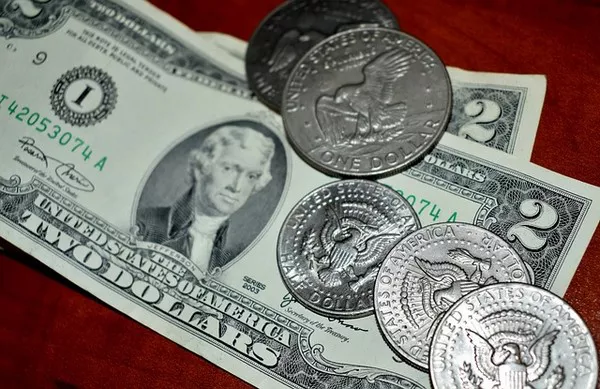A weak U.S. dollar can have broad and far-reaching implications not only for Americans but also for international stakeholders. While a declining dollar might benefit exporters and some emerging markets, it also brings disadvantages. In this article, we explore who is hurt the most when the dollar weakens and why it matters on a global scale.
Understanding What a “Weak Dollar” Means
A “weak dollar” refers to a decline in the value of the U.S. dollar relative to other currencies. When the dollar is weak, it means that more dollars are needed to purchase foreign currencies. This usually happens due to factors like low interest rates, trade deficits, or inflationary policies.
While a weaker dollar can improve U.S. export competitiveness, it can negatively impact several key groups and sectors.
1. American Consumers
Higher Prices on Imported Goods
American consumers are among the first to feel the sting of a weaker dollar. Since the U.S. imports a significant amount of consumer goods—from electronics to clothing—a weak dollar makes these imports more expensive.
Electronics: Devices like smartphones, laptops, and TVs are often made overseas. A weaker dollar means higher costs at the checkout counter.
Vehicles: Foreign-made cars and parts become more expensive, which can increase the overall cost of owning and maintaining a vehicle.
Groceries: Items like coffee, fruits, and wine that are imported from other countries become pricier.
Reduced Purchasing Power Abroad
For Americans traveling internationally, a weaker dollar reduces their buying power. A vacation in Europe, for instance, becomes more expensive in dollar terms, affecting tourism and leisure spending.
2. U.S. Businesses Dependent on Imports
Rising Input Costs
Companies that rely on importing raw materials, components, or finished goods suffer from increased costs when the dollar is weak. This includes businesses in:
- Manufacturing
- Retail
- Technology sectors
Higher input costs can squeeze profit margins or force businesses to pass costs on to consumers, potentially leading to inflationary pressures.
Supply Chain Disruptions
A weaker dollar can complicate supply chain agreements, especially those denominated in foreign currencies. Long-term contracts may need to be renegotiated, and unpredictable currency movements can introduce financial risk.
3. Foreign Investors Holding Dollar-Denominated Assets
Declining Returns in Local Currency Terms
When the dollar weakens, foreign investors see the value of their dollar-denominated assets decrease in terms of their own currency. For example, a Japanese investor holding U.S. Treasury bonds may see lower returns when converted back to yen.
This reduced appeal can lead to:
- Lower demand for U.S. stocks and bonds
- Potential capital flight to stronger currencies
- Reduced foreign investment in U.S. financial markets
Exchange Rate Risk
International investors face increased currency risk. Even if a U.S. asset performs well in dollar terms, currency devaluation can erode gains when converted into the investor’s local currency.
4. U.S. Citizens Living or Retiring Abroad
Increased Cost of Living
Retirees or expatriates who rely on fixed incomes or Social Security checks denominated in U.S. dollars may find that their purchasing power abroad decreases. Countries with stronger currencies relative to the dollar, such as Switzerland or the Eurozone, become more expensive places to live.
Financial Strain on Healthcare and Services
For U.S. retirees in foreign countries, expenses such as private healthcare, rent, and services can significantly rise, forcing them to either dip into savings or relocate to more affordable regions.
5. Countries That Peg Their Currency to the Dollar
Imported Inflation
Countries that peg their currency to the U.S. dollar (such as some in the Middle East or Caribbean) can be negatively affected. When the dollar weakens, they may have to deal with imported inflation as their pegged currency also loses value relative to other global currencies.
Trade Competitiveness Issues
A weak dollar can hurt countries that export in dollars but import from nations with stronger currencies. This imbalance makes their exports less competitive while increasing the cost of imports.
6. Global Businesses Operating in the U.S.
Lower Profit Margins in Home Currency
Multinational corporations operating in the U.S. and reporting earnings in their home currency may find their profits diluted when repatriated. For example, a German firm earning revenue in the U.S. may report lower euro-denominated profits due to the weakened dollar.
Increased Operational Costs
If these businesses import goods and services into the U.S., they face the double challenge of:
- Paying more for imports due to the weak dollar
- Earning less from U.S. operations when converting to their home currency
7. Emerging Market Economies With Dollar-Denominated Debt
Debt Servicing Becomes Harder in Relative Terms
While a weak dollar might temporarily ease repayment for countries with dollar-denominated debt, it can introduce volatility and uncertainty. If those countries also experience weakening of their own currencies, their ability to repay debt worsens as soon as the dollar strengthens again.
Risk of Capital Flight
A weak dollar can lead investors to chase higher yields elsewhere. Emerging markets that rely on foreign investment may experience capital flight, especially if interest rates rise in countries with stronger currencies.
8. U.S. Dollar as Global Reserve Currency
Erosion of Confidence
If the dollar weakens persistently, it can undermine its status as the world’s primary reserve currency. Countries holding large reserves in dollars (like China or Saudi Arabia) may seek diversification into other currencies like the euro or yuan.
This can cause:
- A long-term decline in demand for U.S. assets
- Higher borrowing costs for the U.S. government
- Geopolitical shifts in economic influence
Conclusion
While a weak dollar can benefit some sectors like U.S. exporters and certain tourism businesses, the list of those negatively affected is substantial. American consumers, import-reliant businesses, international investors, expatriates, and nations tied to the dollar all face real economic disadvantages.
Understanding these impacts is crucial for policymakers, investors, and business leaders alike. In a global economy where currency values are deeply interconnected, the ripple effects of a weak dollar reach far beyond the borders of the United States.


